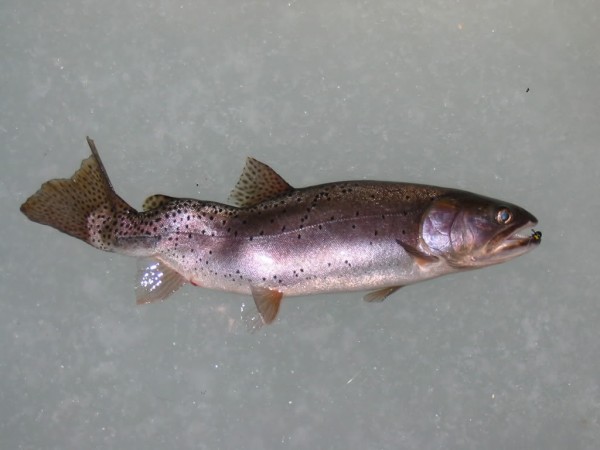The Canadian Food Inspection Agency (CFIA) announced on Friday that it has confirmed the presence of whirling disease (infection with Myxobolus cerebralis) in the Bow River watershed of Alberta, including Banff National Park, and the Bow River watershed has been declared an infected area for this disease.
As a consequence, the CFIA has outlined a domestic movement permit process for industries dealing with potentially contaminated specimens and establishes a federal government role in management of this disease for Canada. However, the declaration does not mean that every susceptible finfish population within the Bow River watershed is infected with the disease.
The rest of Alberta has been declared as a buffer area for this disease until surveillance by the CFIA, Parks Canada, and the province determine that the buffer area or parts of the buffer area are either free or infected with whirling disease.
The domestic movement permit will be required from the CFIA for susceptible species and end uses identified in the Domestic Movement Control Program, the vector Tubifex tubifex, the disease causing agent Myxobolus cerebralis, and/or related things out of the infected and buffer areas of Alberta.
The following are examples provided by the CFIA of facilities and activities that will require a permit:
- Provincially-licensed aquaculture facilities designated as Commercial A in Alberta and moving live or dead finfish or gametes for cryopreservation, culture, research, and release into natural waterways.
- Diagnostic laboratories that are receiving live or fresh, dead or frozen finfish, or the pathogen of whirling disease from the Bow River watershed or from Alberta.
- Other types of laboratories that participate in water toxicity or benthic testing programs, for example, and are receiving live or fresh, dead or frozen finfish, or freshwater sediments.
- Research activities that are utilizing live or fresh, dead or frozen finfish, the vector of whirling disease, the pathogen of whirling disease, or freshwater sediments from the Bow River watershed or from Alberta.
Commercial A aquaculture facilities in Alberta can also apply to the CFIA for compartment recognition and declaration as a free area for whirling disease.
Recreational and sport fishing, including fishing led by a professional guide, will not require a CFIA permit.
If you move finfish or related things domestically, the CFIA asks that you please consult the Domestic Movement Control Program for the latest information.
Parks Canada and the Government of Alberta will also share in management of this disease within Alberta.
Water Canada has previously reported on the spread of whirling disease and efforts to stem the spread of the pathogen.









